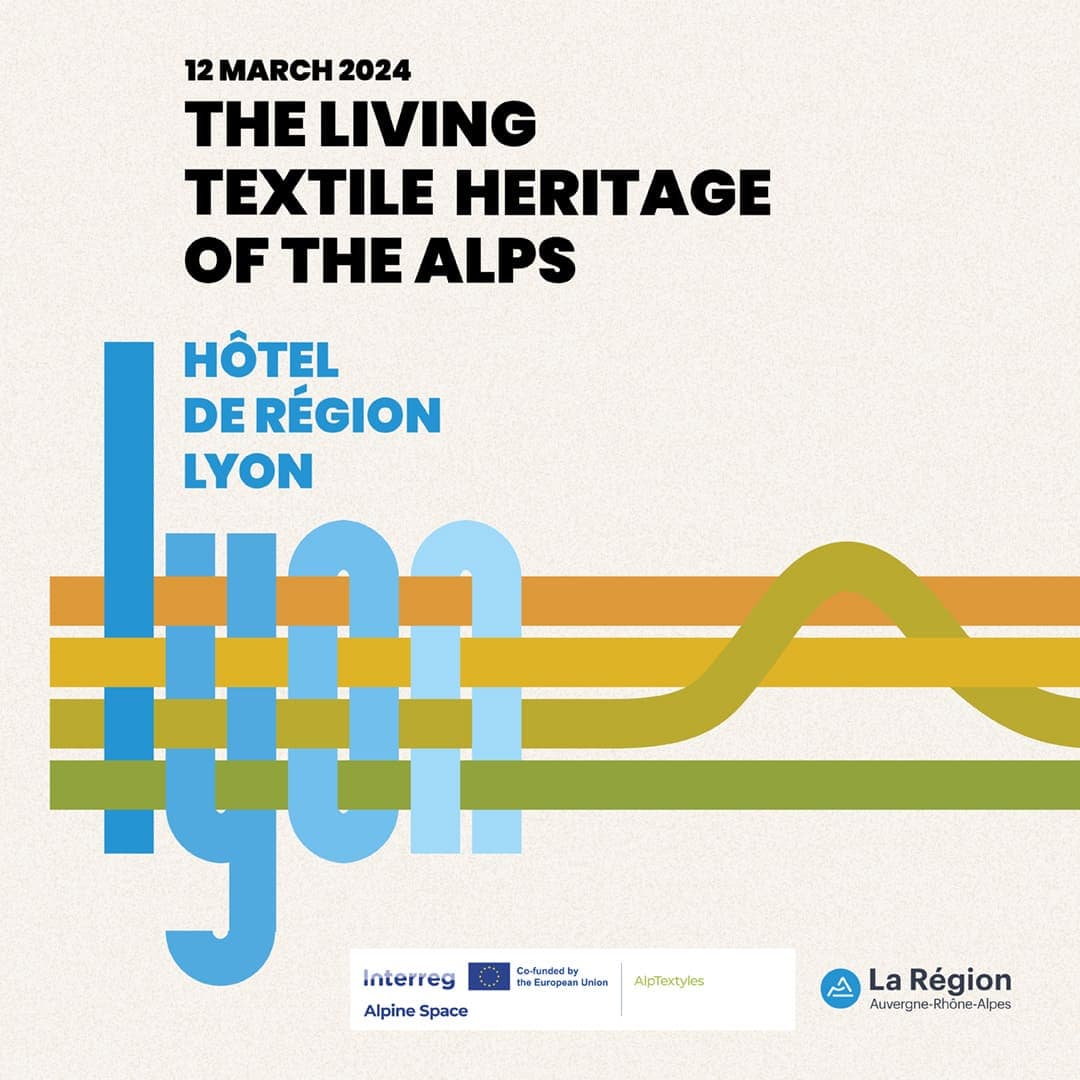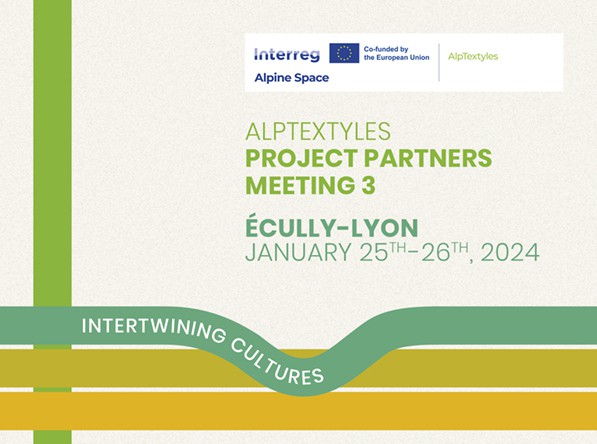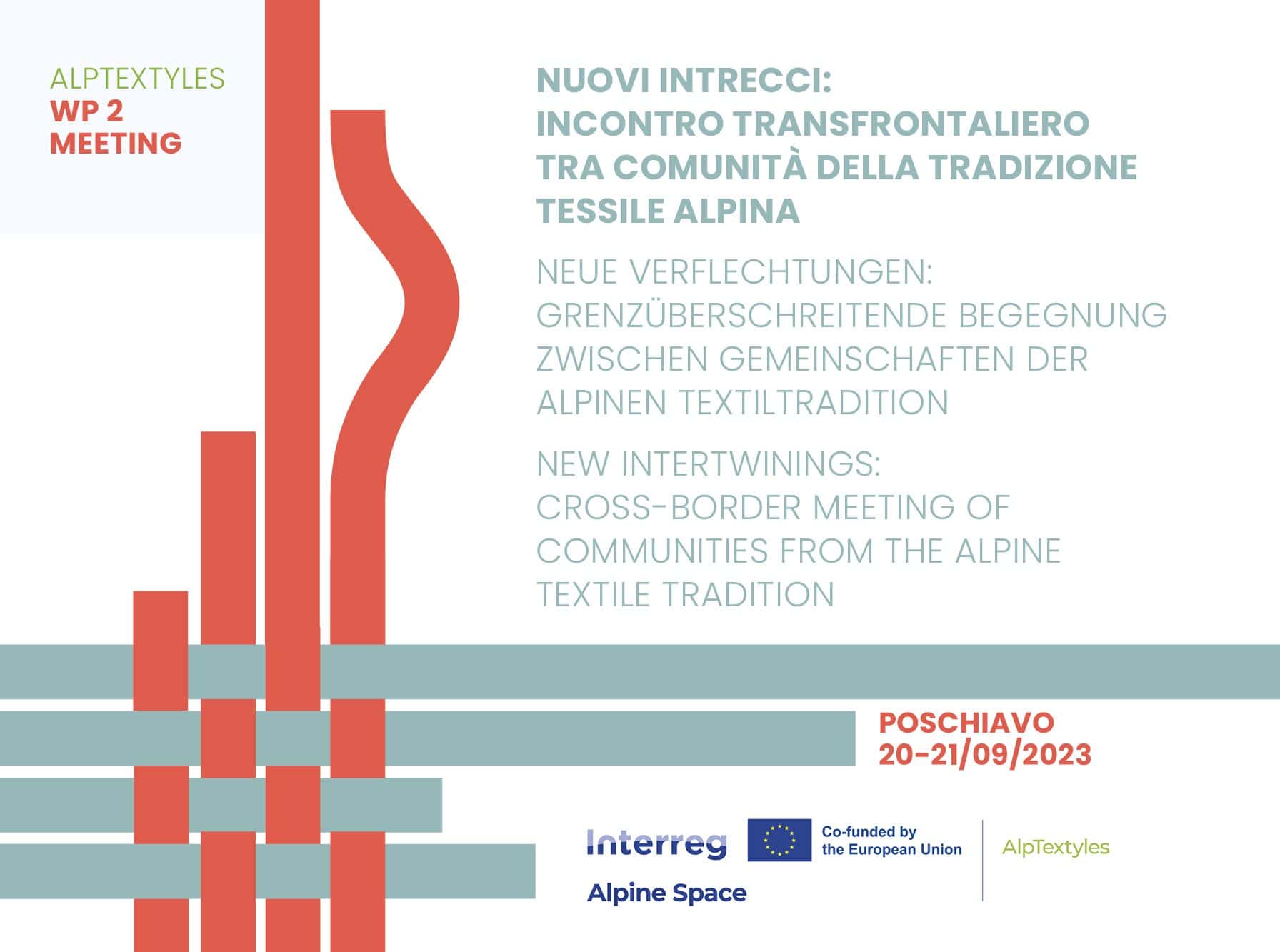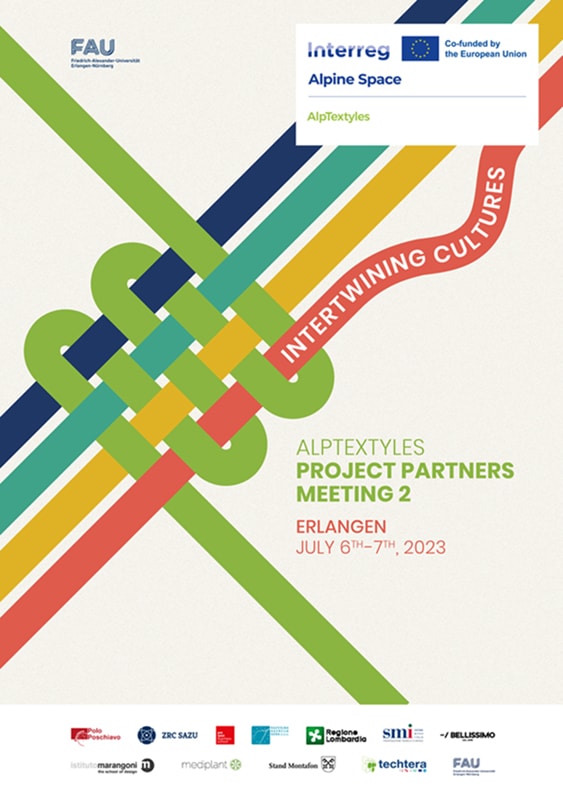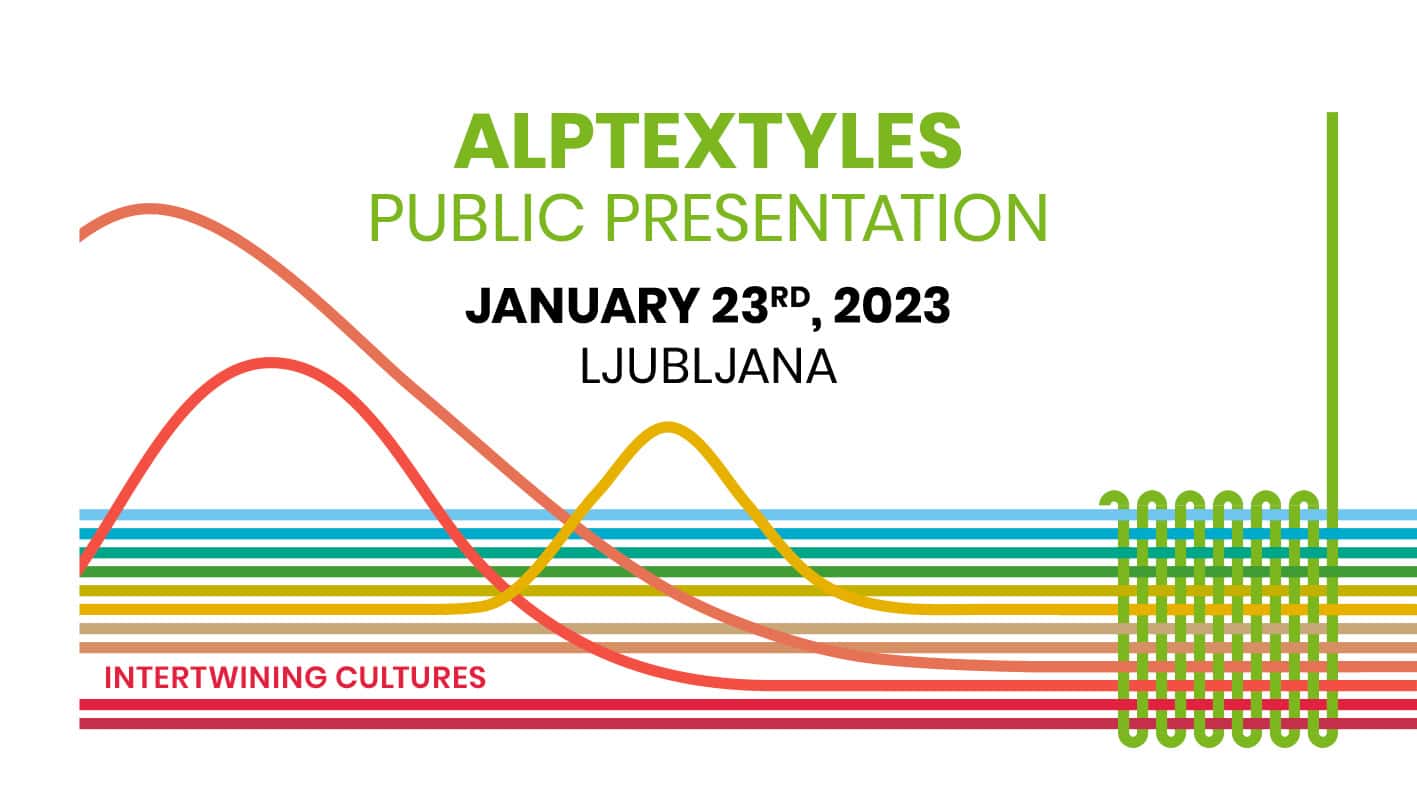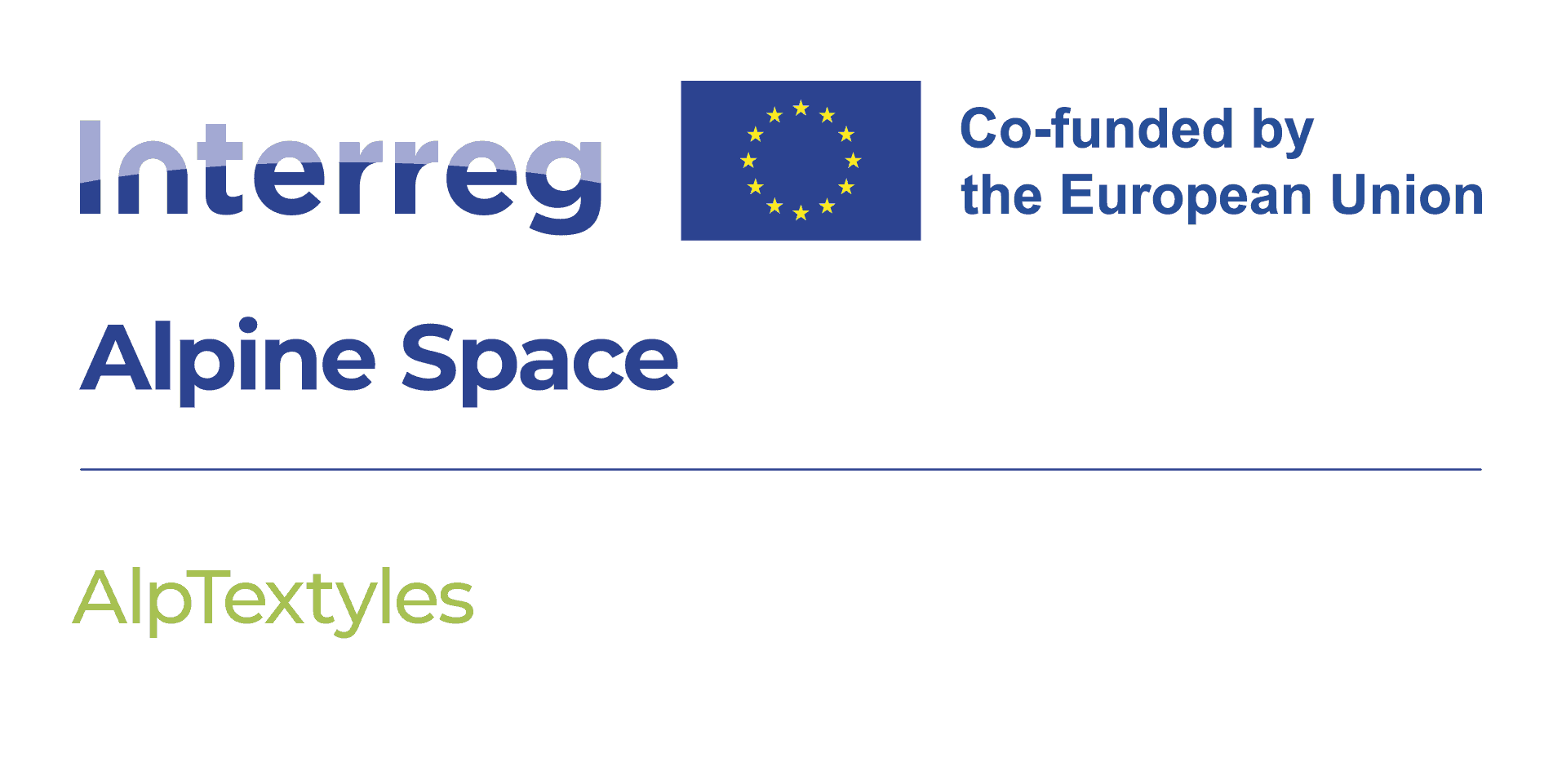
Overview
Textile value chains are amongst the most polluting industries, with a massive potential for CO2 reduction. When we approach the rich textile heritage of the Alps, we see it brimming with specific aesthetics and know-how based on values of circularity and sensitivity to local resources.
So, as consumers grow increasingly critical of globalized value chains and turn to more sustainable lifestyles, the Alpine heritage could contribute to re-territorialize the local textile value chains disrupted by global sourcing and offshore production while boosting natural local resources and projecting an attractive image that justifies the price point of Alpine products.
With its 12 partner organizations from 6 Alpine countries, AlpTextyles gathers precious textile ecosystems to create a common ground of expertise in research and innovation, foster regional development and job creation, and safeguard cultural heritage and circularity.
Factsheet
- 2021 – 2027
- Carbon neutral and resource sensitive Alpine region
- SO 2.2 - Promoting the transition to a circular and resource efficient economy
-
- AG3 Labour market, education and training
- AG6 Natural resources
- 11/2022
- 10/2025
- 2.979.694 EUR
- 1.970.770 EUR
Outcomes
-
Concept for the development of heritage-sensitive & circular textile craft & Industrial products through cross-border matchmaking
Jointly developed by PPs based on WP1 activities & tested in pilot actions 2.1&2.4, the output proposes a replicable & scalable format to develop heritage-sensitive & circular new textile craft & industrial products based on: 1 Concept development; 2 Analysis of missing resources/technologies/skills; 3 Cross-border matchmaking of farmers, breeders, craftspeople, technical/technology providers, experts in heritage safeguarding/textile design/circular design/storytelling; 4 product development. -
Format for communicating the value of heritage-sensitive, circular, cross-border textile products to consumers
Jointly developed by PPs based on WP1 activities & tested in activity 2.1, the output proposes a replicable&scalable communication format to persuade consumers of the value of circular, heritage-sensitive Alpine textile products. The format, based on heritage storytelling principles, will address consumer distrust of sustainability claims (perceivable as greenwashing) & difficulties in promoting products from cross-border value chains (respect to regional/national value chains). -
Innovative formats for the cross-border trainings of youth, students and professionals on the living textile heritage of the Alps and sustainable and circular value chains
Jointly developed by PPs based on WP1 activities & tested in activity 2.2, the output proposes innovative formats to raise awareness about & build capacity on the Alpine textile heritage & circular & resource-sensitive textile design through 1Open contests open to students and youth in the Alps 2Collaboration with Alpine textile schools 3Learning visits to farms, weaving workshops & other sites 4Development of new products & communication approaches targeting the new generations' sensitivities. -
Heritage-sensitive & circular Alpine textile value chains: Orientation Guides and Heritage Safeguarding Toolkits
Output will make accessible project insights to TGs. 1 Orientation Guides will help textile SMEs & business support organisations to establish circular & heritage-sensitive value chains meeting consumer need for postcarbon lifestyles. 2 Heritage Safeguarding toolkit will help cultural institutions & heritage communities document, digitalize, revitalize, protect through IP rights the Alpine textile heritage & engage with new generations & textile designers. -
Heritage-sensitive & circular Alpine textile value chains: Policy Brief
This Policy Brief (PB) will report on the traditional Alpine textile heritage & current state and potential of the Alpine textile sector, providing multi-sectoral strategic recommendations for cultural and textile policies at the regional and macro-regional (i.e., EUSALP) level, also considering the EU strategy for sustainable textiles & the coming EU regulation on geographical indications for heritage textile craft&industrial products. -
"The living textile heritage of the Alps and its sustainable circular future" Massive Online Open Course (MOOC)
The MOOC will raise awareness & build capacity on the living textile heritage of the Alps, from traditional knowhow and aesthetics to its circular and sustainable future. Participants – students and professionals alike – will learn about the cultural added value of heritage-sensitive innovation and storytelling and how to work with heritage communities in respectful manners avoiding cultural appropriation.
Videos
Gallery
- Inspiring cultureArchivio fotografico Valposchiavo | www.istoria.ch
- Preserving natureCourtesy of Rokodelski Center Škofja Loka
- Innovative technologyShutterstock
- Sustainable practicesUnsplash
- Contemporary expertiseCourtesy of Rokodelski Center Škofja Loka
- Community spiritCourtesy of Rokodelski Center Škofja Loka
- Circular fashionShutterstock
- Responsible lifestyleUnsplash
Project calendar
